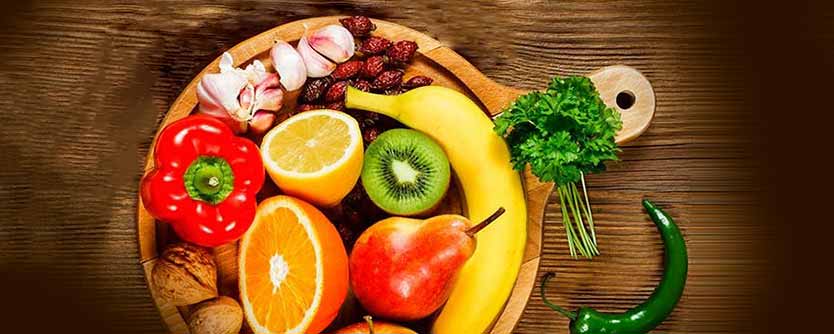Although there is no diet cure for arthritis, certain foods have been shown to fight inflammation, strengthen bones and
[the_ad id=”6157″]boost the immune system. By eating certain anti-inflammatory foods may help ease the pain, stiffness, and other symptoms of knee osteoarthritis. Adding these foods to your balanced diet may help ease the symptoms of your arthritis.
Eating well can help you manage or maintain your weight. Not everyone with knee osteoarthritis will need to lose weight, but if you are overweight, getting to a healthier weight by eating well can be helpful in managing your osteoarthritis.
Follow these simple steps to keep your joints happy.
- Cut Extra Calories – Your knees will feel better if you keep your waistline trim. When you drop those extra kgs, you’ll put less stress on your joints. A good way to lower your calorie count: Take smaller portions, avoid sugary foods and drinks, and eat mostly plant-based foods.
- Eat More Fruits and Veggies – These super foods contain vitamins, minerals, and phytochemicals to help you combat joint pain and swelling. Some antioxidants, found in fruits and veggies like apples, onions and strawberries may also help reduce joint inflammation and pain. The more colorful the better. Fill your breakfast, lunch, and dinner plates with as much color as you can—taste the rainbow. Red grapes, blueberries, carrots, and spinach are some examples of fruits and veggies that may have anti-inflammatory benefits.
- Add Omega-3 Fatty Acids – Omega-3s may help relieve your joint pain and decrease morning stiffness. They work by reducing inflammation in your body. Fish, such as salmon, and other foods with omega-3 fatty acids can help ease sore, achy joints. If you’re not a fan of fish, you can eat walnuts, flaxseed, and olive oil or take an omega-3 supplement to get the same benefits. Try heart-healthy soybeans. Soybeans are also low in fat, high in protein and fiber and an all-around good-for-your food. Eat a serving of omega-3s at least once a day.
- Use Extra Virgin Olive Oil in Place of Other Fats – Extra virgin olive oil is loaded with heart-healthy fats, as well as oleocanthal, which has properties similar to non-steroidal, anti-inflammatory drugs. But it’s not the only oil with health benefits. Avocado and safflower oils have shown cholesterol-lowering properties, while walnut oil has 10 times the omega-3s that olive oil has. To add olive oil to your diet without extra calories, use it in place of other fats, such as butter. However, one must take care of the total quantity per day.
- Vitamin D – Foods with vitamin D, such as eggs, mushrooms, and fortified foods (e.g., fortified orange juice and breakfast cereals), low-fat dairy products like milk, yogurt and cheese are packed with calcium and vitamin D, both found to increase bone strength. Vitamin D is essential for calcium absorption, and it has been shown to boost the immune system. If dairy doesn’t agree with you, aim for other calcium and vitamin D-rich foods like leafy green vegetables.
- Get Enough Vitamin C – A key element for joint health, antioxidant vitamin C helps build collagen and connective tissue. Try citrus fruits (like oranges and grapefruit), tropical fruits (like papaya, guava, and pineapple), strawberries, kiwi, raspberries, cruciferous vegetables (like cauliflower, broccoli and kale), red peppers, cantaloupe, bell peppers and tomatoes.
- Spices – Ginger, turmeric, dried chili peppers and cinnamon can help ease knee OA symptoms: They may have anti-inflammatory effects on the body, helping to reduce swelling and stiffness. An added bonus is that these spices are brimming with flavor without adding any calories. When possible, sprinkle them in at every meal. Grate fresh ginger into stir fries, add to salad dressings, sip ginger tea, and add to high-fiber, low-fat muffins. Scientific studies cited in the Journal of Natural Products have shown that turmeric may help arthritis by suppressing inflammatory body chemicals.
- Beta-carotene – This is another powerful antioxidant that helps destroy free radicals before they can cause excessive damage to joints. Beta-carotene is easy to identify because it gives fruits and vegetables, such as carrots, their bright orange color. Other excellent sources include cruciferous veggies (like kale, Brussels sprouts, broccoli, collard greens, mustard greens, and chard), sweet potatoes, cantaloupe, greens (like lettuce and spinach), parsley, apricots, peppermint leaves and tomatoes.
- Vitamin E – Vitamin E is known for its strong antioxidant powers. A study (International Journal of Rheumatic Diseases, 2009) compared the knees of 42 people undergoing knee surgery: 32 with severe osteoarthritis and 10 with non-arthritis injuries. Researchers found less vitamin E in the knees of the osteoarthritis patients, implying that they were getting less of the vitamin’s protective benefits. Almonds, sunflower seeds and oil, safflower oil, hazelnuts, peanuts and spinach are all excellent sources of vitamin E.
- Go Green (Tea) – Green tea is packed with polyphenols, antioxidants believed to reduce inflammation and slow cartilage destruction.
- Go With the Grain – Whole grains lower levels of C-reactive protein (CRP) in the blood. CRP is a marker of inflammation associated with heart disease, diabetes and rheumatoid arthritis. Foods like oatmeal, brown rice and whole-grain cereals are excellent sources of whole grains.
- Break Out the Beans – Beans are packed with fiber, a nutrient that helps lower CRP. Beans are also an excellent and inexpensive source of protein, which is important for muscle health. Some beans are rich in folic acid, magnesium, iron, zinc and potassium, all known for their heart and immune system benefits. Look for red beans, kidney beans

